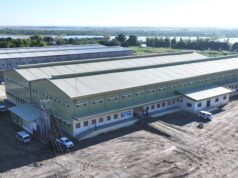MORE FLIGHTS between Clark and points in Malaysia will most assuredly augur well for the Diosdado Macapagal International Airport being the premier international gateway of the Philippines.
In the just concluded air consultation talks between the Philippines and Malaysia, Clark got a real big deal with 9,000 seats per week that so moved Clark International Airport Corp.
President/CEO Chichos Luciano to enthuse: “This is good news for the overseas Filipino workers in Malaysia where additional seven flights per day have been given to the DMIA. We are most happy with the outcome of the talks.”
The 9,000 seats – Chichos’ EVP Alex Cauguiran clarified – are translated to seven flights a day or 49 frequencies per week with aircraft of 180- passenger capacity like the Boeing 737 or Airbus 320.
With multiple designations thrown in in the agreement, local carriers can now also fly from Clark to Malaysian points of destination.
Clark scored in the talks not only in passenger traffic but in cargo as well – all 700 tons per week designated for DMIA.
New as these developments are, it could be said that the Malaysian aviation industry has always been bullish on Clark. As a matter of record, perhaps even more bullish than a number of Filipino industry players, foremost of whom the taipan you-know-who.
Remember, at the time that the established Philippine airlines did not want to locate at the DMIA, there was Malaysian Tony Fernandez’s Air Asia that gambled on the viability of Clark as destination.
Fernandez, saw in Clark what our locals did not. And what he saw and delved into proved most profitable with Air Asia’s now twice daily Clark-Kuala Lumpur and Clark-Kota Kinabalu flights.
Beyond the color of money, the emotional bonds that came into Air Asia’s Clark flights, for that matter Singapore’s Tiger Airways too, were – still are – found most profitable.
I remember the maiden flights of Air Asia and Tiger to DMIA that came but a few minutes apart. I was with Clark Development Corp.’s Sonny Lopez and his boss then Tony Ng welcoming the passengers.
A most moving moment came when two domestic helpers from La Union embraced Mister Ng and in tears profusely thanked him for making their dreams possible: of cheaper airfare, and an airport near home.
“With Air Asia, we can now be home with our loved ones more often,” they said. That is an intangible, but most heartfelt benefit that Clark provided our people.
Come to think of it now, Clark’s closeness to Malaysia is not a happenstance of economics but maybe really written in the skies, in both figurative and literal senses.
Clark is Kapampangan land. And Kapampangan is very close to Bahasa Malaysia – from nasi to babi, cinta to mete, jalan for dalan, datang to keluar, tinggal to pulu. To cite just a few of the common words we share that I still remember from my scholarship period in Kuala Lumpur in 1985.
Of course, we share the same race. Ain’t our national hero Jose Rizal called “Pride of the Malay race”? Ain’t Malaysian prime minister in-waiting Anwar Ibrahim an ardent admirer of Rizal, and a “brother” to Erap?
So, indeed, the results of the RP-Malaysia air consultation talks are a cause for celebration.
Selamat datang, welcome then…or more aptly, terima kasih, thank you Malaysia.
Mabuhay Chichos and Alex. Mabuhay Dato Long See Wool, Rosida Ismail, Hanniza Berhan, Senthil Balan Danapalan, Lee Sok Khoon and Intan Zurina Dollah.




